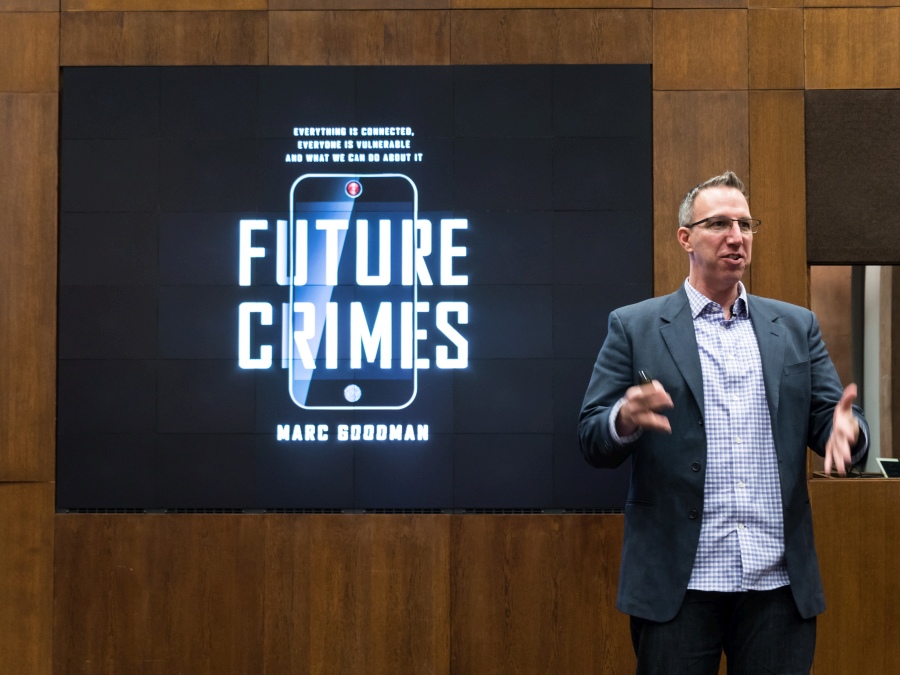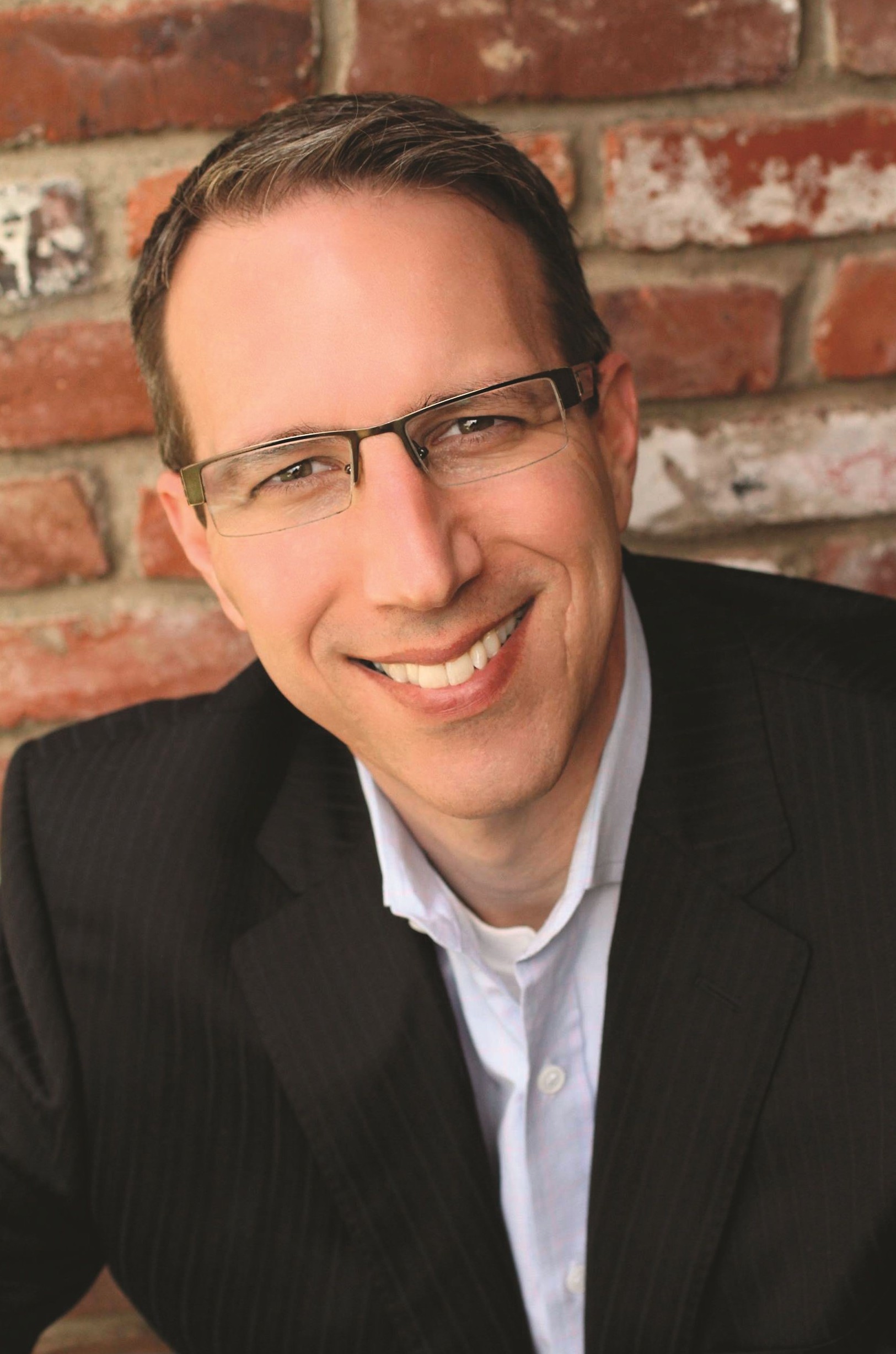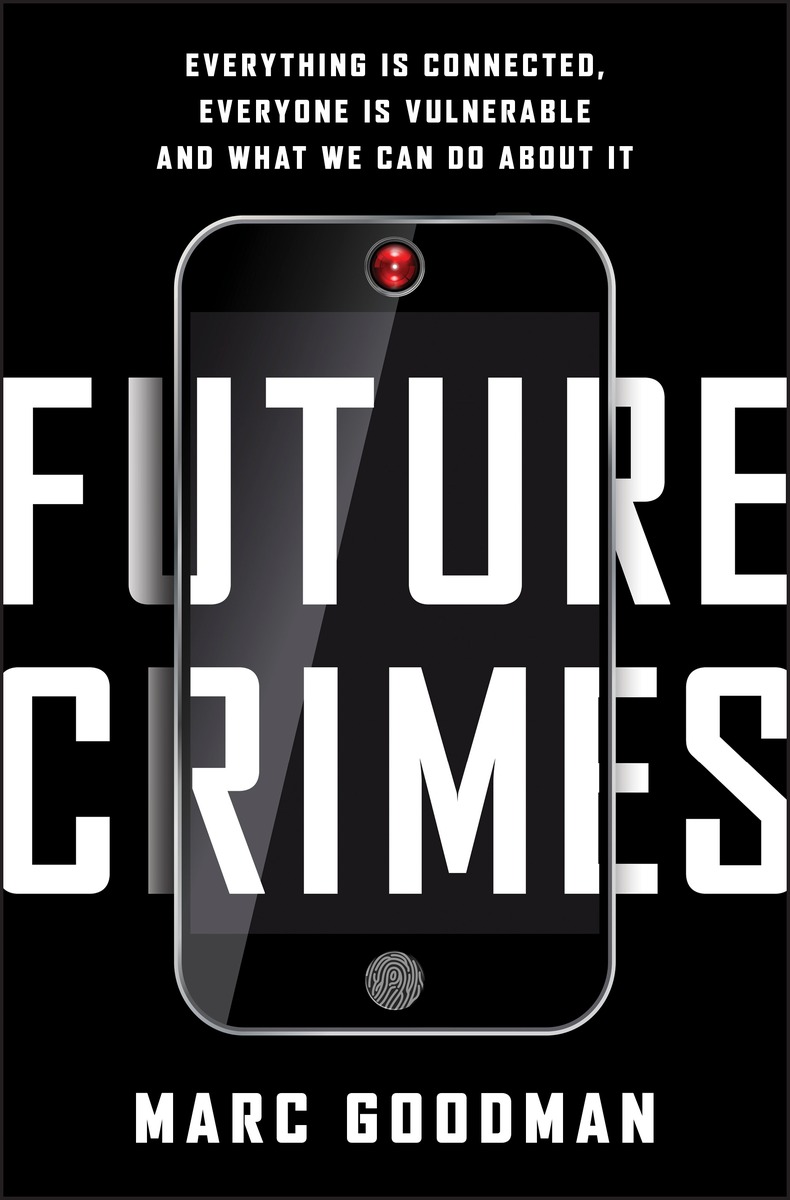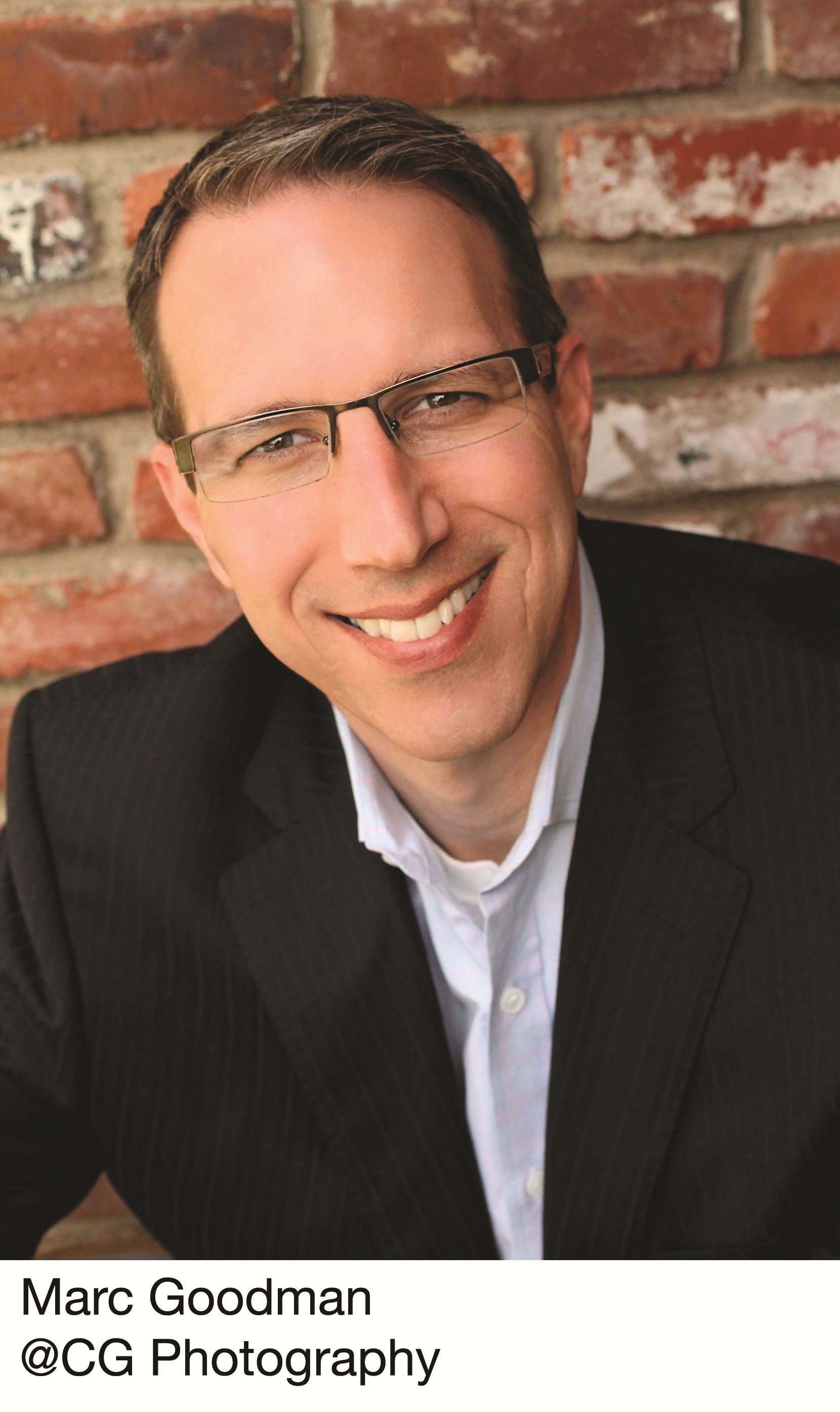Podcast: Play in new window | Download | Embed
Subscribe: RSS

Marc Goodman is not your typical street cop – he considers himself a humanitarian, is super smart and well-educated, has worked in over 70 countries, and speaks more languages than I can list here. Marc has worked for Interpol and is the Futurist for the FBI. If that is not enough, Goodman is also the Chair for Policy, Law, and Ethics at Singularity University as well as the author of the scariest book I have ever read in my life – Future Crimes: Everything Is Connected, Everyone Is Vulnerable and What We Can Do About It. I say scariest because, on a list of many other scary books, Future Crimes stands out both because it is non-fiction and because of the absolutely stunning number of meticulously collected and classified cases from a variety of seemingly unrelated fields. As someone who spent years studying security and political science, I have to admit that this was by far the most comprehensive, up-to-date, technologically aware, and forward-looking book in the field that I have read so far.
During our 45 min discussion with Marc Goodman, we covered a variety of interesting topics, such as: how he got interested in law enforcement and eventually started seeing the connection with technology; and the cyber dangers to our security that most of us don’t see; Moore’s Law and Moore’s Outlaws or why crime scales but law-enforcement does not; security lessons from epidemiology and bio-mimicry; why the era of anti-virus software is over; how the cyber-threat is going from 2D to 3D; criminal hackers and corporate data-brokers; Goodman’s Law…
Let me add that this was one of those interviews where I really did not do justice to Marc’s phenomenal Future Crimes. And, while I will definitely use this as an excuse to bring Goodman back for a follow-up, I urge you to check out his book for yourself.
As always you can listen to or download the audio file above or scroll down and watch the video interview in full. To show your support, you can write a review on iTunes, make a direct donation, or become a patron on Patreon.
Who is Marc Goodman?
 Marc Goodman is a global strategist, author and consultant focused on the disruptive impact of advancing technologies on security, business and international affairs. Over the past twenty years, he has built his expertise in next generation security threats such as cyber crime, cyber terrorism and information warfare working with organizations such as Interpol, the United Nations, NATO, the Los Angeles Police Department and the U.S. Government. Marc frequently advises industry leaders, security executives and global policy makers on transnational cyber risk and intelligence and has operated in nearly seventy countries around the world.
Marc Goodman is a global strategist, author and consultant focused on the disruptive impact of advancing technologies on security, business and international affairs. Over the past twenty years, he has built his expertise in next generation security threats such as cyber crime, cyber terrorism and information warfare working with organizations such as Interpol, the United Nations, NATO, the Los Angeles Police Department and the U.S. Government. Marc frequently advises industry leaders, security executives and global policy makers on transnational cyber risk and intelligence and has operated in nearly seventy countries around the world.
In addition, Marc founded the Future Crimes Institute to inspire and educate others on the security and risk implications of newly emerging technologies. Marc also serves as the Global Security Advisor and Chair for Policy and Law at Silicon Valley’s Singularity University, a NASA and Google sponsored educational venture dedicated to using advanced science and technology to address humanity’s grand challenges. Marc’s current areas of research include the security implications of exponential technologies such as robotics, artificial intelligence, the social data revolution, synthetic biology, virtual worlds, genomics, ubiquitous computing and location-based services.
Since 1999, Marc has worked extensively with INTERPOL, the International Criminal Police Organization, headquartered in Lyon, France where he continues to serve as a Senior Advisor to the organization’s Steering Committee on Information Technology Crime. In that capacity, Marc has trained police forces throughout the Middle East, Africa, Europe, Latin America and Asia and has chaired numerous INTERPOL expert groups on next generation security threats.
In recognition of his professional experience, Marc was asked by the Secretary General of the United Nations International Telecommunications Union (ITU) to join his High Level Experts Group on Global Cybersecurity. He has also worked with other UN entities including the United Nations Institute for Disarmament Research on cyber warfare and has served as a Senior Researcher for theUnited Nations Counter-Terrorism Task Force on technical measures to counter terrorist use of the Internet. He also is a member of the Halifax International Security Forum’s Network.
Marc has authored more than one dozen journal articles and ten book chapters on on a variety of emerging security threats, including cybercrime, bio-security and critical infrastructure protection. Representative works have been published by the Harvard Business Review, The Atlantic, Forbes, The Economist, Harvard Journal of Law & Technology, Oxford University Press, Jane’s Intelligence Review, the American Bar Association, the FBI Law Enforcement Bulletin, the Institute of Electronic and Electronics Engineers (IEEE).
Marc holds a Master of Public Administration from Harvard University and a Master of Science in the Management of Information Systems from the London School of Economics. In addition, he has serves as a Fellow at Stanford University’s Center for International Security and Cooperation and is a Distinguished Visiting Scholar at Stanford’s MediaX Laboratory. Marc is frequently covered in the press, having been featured by CNN, ABC, NBC, BBC, Fox News, The Guardian, Le Monde and PBS, among others.

 In George Orwell’s dystopian novel 1984, he depicted an omnipotent government surveillance state controlled by a privileged few elite who persecuted independent thinking as “thought crimes.” Though Orwell clearly would have foreseen the NSA debacle, it’s less clear he might have predicted Acxiom, Facebook, and Google. To that point, in those cases it wasn’t Big Brother government that “did something to us,” but rather we who did something to ourselves. We allowed ourselves to become monetized and productized on the cheap, giving away billions of dollars of our personal data to new classes of elite who saw an opportunity and seized it. We accepted all their one-sided Terms of Service [ToS] without ever reading them, and they maximized their profits, unencumbered by regulation or oversight. To be sure, we got some pretty cool products out of the deal, and Angry Birds is really fun. But now that we’ve given all these data away, we find ourselves at the mercy of powerful data behemoths with near-government-level power who do as they please with our information and our lives.
In George Orwell’s dystopian novel 1984, he depicted an omnipotent government surveillance state controlled by a privileged few elite who persecuted independent thinking as “thought crimes.” Though Orwell clearly would have foreseen the NSA debacle, it’s less clear he might have predicted Acxiom, Facebook, and Google. To that point, in those cases it wasn’t Big Brother government that “did something to us,” but rather we who did something to ourselves. We allowed ourselves to become monetized and productized on the cheap, giving away billions of dollars of our personal data to new classes of elite who saw an opportunity and seized it. We accepted all their one-sided Terms of Service [ToS] without ever reading them, and they maximized their profits, unencumbered by regulation or oversight. To be sure, we got some pretty cool products out of the deal, and Angry Birds is really fun. But now that we’ve given all these data away, we find ourselves at the mercy of powerful data behemoths with near-government-level power who do as they please with our information and our lives. Marc Goodman
Marc Goodman Marc Goodman is the Policy, Law and Ethics chair at
Marc Goodman is the Policy, Law and Ethics chair at